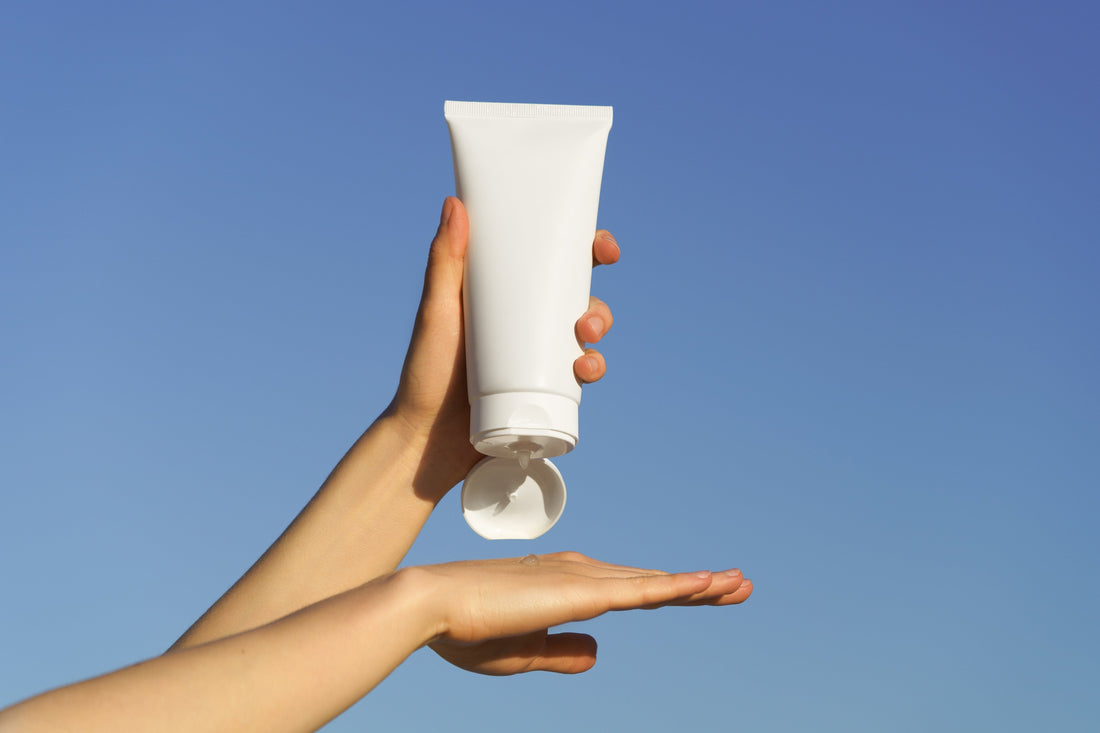In the first part of our Sunsational SPF Series, we’ve covered everything you need to know about sunscreens: what it is, what the SPF number really means, and how it actually works.
And let's be real — we’re not the only ones talking about it. Everyone and their grandma seems to be preaching the importance of sunscreen and crucifying those who skip it. But have you ever stopped to think about why it’s so crucial? Is it really that bad if you skip sunscreen once in a while? Well, spoiler alert: Yes, it is. In fact, it’s a cardinal sin. And we’re here to tell you why.
Understanding SPF and UV Radiation
When it comes to sunscreen, there’s more than one type of sunscreen, and each one works a little differently to keep your skin safe! Some sunscreens only guard against UVB rays, the ones that give you that painful sunburn. Others focus on UVA rays, which sneak deeper into your skin and can cause long-term issues like wrinkles and age spots.
Then, there are broad-spectrum sunscreens—the complete package! These protect you from both UVA and UVB rays, offering the ultimate shield for your skin.
For the best defense, always reach for a broad-spectrum sunscreen. It’s your skin’s all-in-one protector, keeping you safe from both sunburn and long-term damage, so you can enjoy the sun without worrying about the risks it brings!
Why You Should Wear Sunscreen Every Day
Exposure to UV rays affects the skin's appearance and health. Ultraviolet light damages the skin’s connective tissue over time, resulting in wrinkles, fine lines, and other signs of ageing. The full extent of this damage may not be visible immediately but can show up years later. Additionally, sun exposure significantly raises the risk of skin cancer, especially in high-risk areas like Australia.
The UV index, often included in weather forecasts, indicates daily UV intensity but should not be mistaken as a seasonal measurement; UV radiation persists even during winter or on cooler days. Sunscreen use should be consistent daily, regardless of the season or weather.
Sunscreen is Not Just for Summer
A common misconception is that sunscreen is only necessary on hot days or during summer. However, ultraviolet (UV) radiation is present year-round. While UVB rays are indeed stronger during summer, UVA rays are consistently present all year and can penetrate through clouds and even glass. This means our skin is vulnerable to sun damage even on overcast days and indoors.
Moreover, sun damage accumulates over time. Even minor, daily exposure contributes to this, so developing a daily sunscreen habit is crucial. For those with darker skin tones, who have higher levels of melanin, sun protection remains essential, as all skin tones are susceptible to sun-induced damage, premature ageing, and skin cancer.
You Need Sunscreen at Home Too!
We’re all quick to apply sunscreen when heading outside, but what about when you’re indoors? Surely you can skip it, right? —Not quite!
You might think you're safe from UV rays indoors, but that’s not entirely true. UVA rays, which are responsible for aging and long-term skin damage, can easily penetrate windows, meaning you’re still exposed to them, even while chilling at home. Whether you're working near a window, relaxing in the sun, or even just binge-watching TV, your skin is still at risk.
To protect your skin from harmful UV radiation, it’s a smart idea to apply sunscreen every day, even when you’re at home. It’s a simple habit that shields your skin from premature aging, dark spots, and the risk of skin cancer. It might sound like a hassle, but by keeping your skin protected at all times, you’re giving it the care it deserves, no matter where you are!
Benefits of Daily Sunscreen Use
-
Reduces Skin Cancer Risk
Sunscreen is one of the most effective tools for skin cancer prevention. Applying a minimum of SPF 30 daily, even on cloudy days, lowers your risk. For increased protection, especially outdoors, reapplying every two hours is recommended.
-
Prevents Premature Ageing
Sun exposure without protection damages elastin, collagen, and skin cells, leading to early signs of ageing, including wrinkles, fine lines, and a leathery skin texture. Daily sunscreen use prevents this photoaging and helps keep the skin looking youthful.
-
Prevents Sunburn
Sunburns, caused by prolonged UV exposure, not only damage the skin but also increase cancer risk and cause premature skin ageing. Severe sunburns can lead to blisters and require medical attention, as they heighten the risk of skin damage and scarring.
-
Minimises Skin Discoloration
Sunspots or “liver spots” can appear over time due to UV exposure, particularly on areas frequently exposed like the face and hands. Daily sunscreen use helps prevent these spots from developing.
-
Reduces Inflammation
For those with skin conditions like psoriasis or rosacea, UV rays can exacerbate redness and inflammation. Sunscreens containing gentle ingredients, such as zinc oxide or titanium dioxide, can help prevent irritation. Avoiding alcohol-based spray sunscreens can also reduce potential irritation for sensitive skin.
-
Provides Protection Indoors
UV exposure can still occur indoors, especially from UVA rays that pass through glass. Additionally, blue light from screens can contribute to skin ageing, so wearing sunscreen indoors can provide extra protection.
Sun’s Out, SPF’s On!
Now that we’ve highlighted the immense importance of sunscreen, you’ll probably find yourself reaching for it every time you step outside—even if it’s just a sliver of sunlight! But here’s the catch: not all sunscreens are created equal, and choosing the right one for your skin type is just as crucial as applying it. Whether you have dry, oily, or sensitive skin, using the right sunscreen ensures maximum protection while keeping your skin happy. That’s why, in the final part of our Sunsational SPF series, we’ll guide you through choosing the best sunscreen for every skin type—covering all the essentials to make sure no face is left unprotected. Stay tuned!



